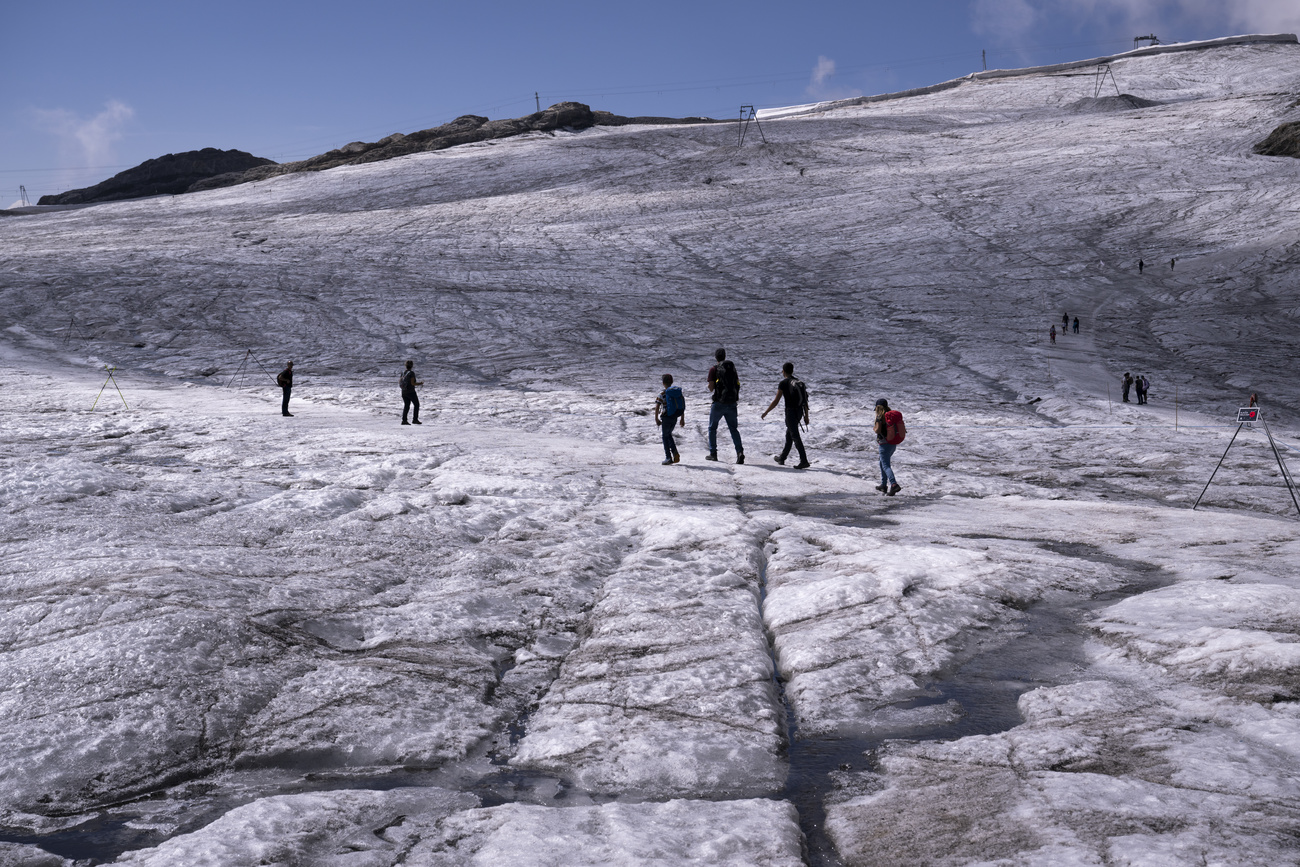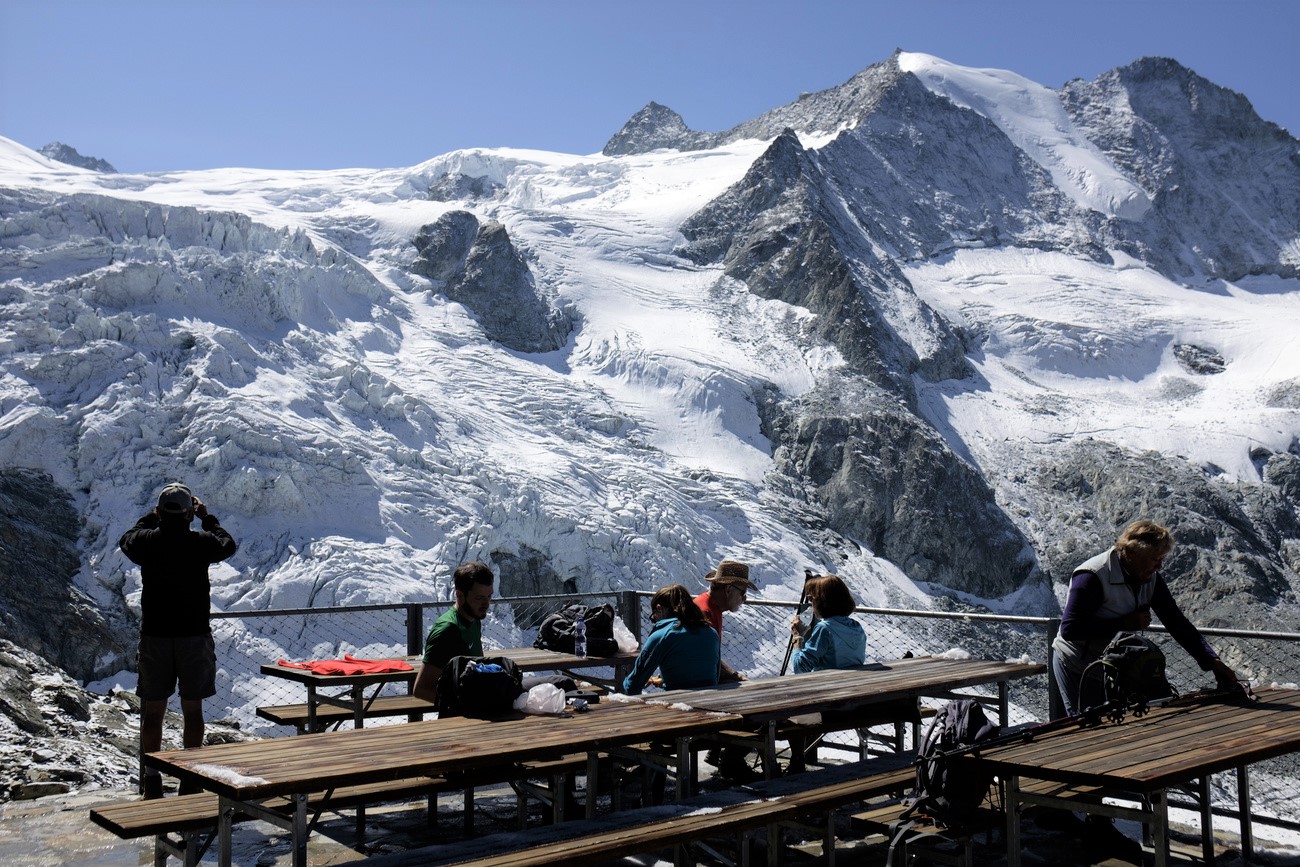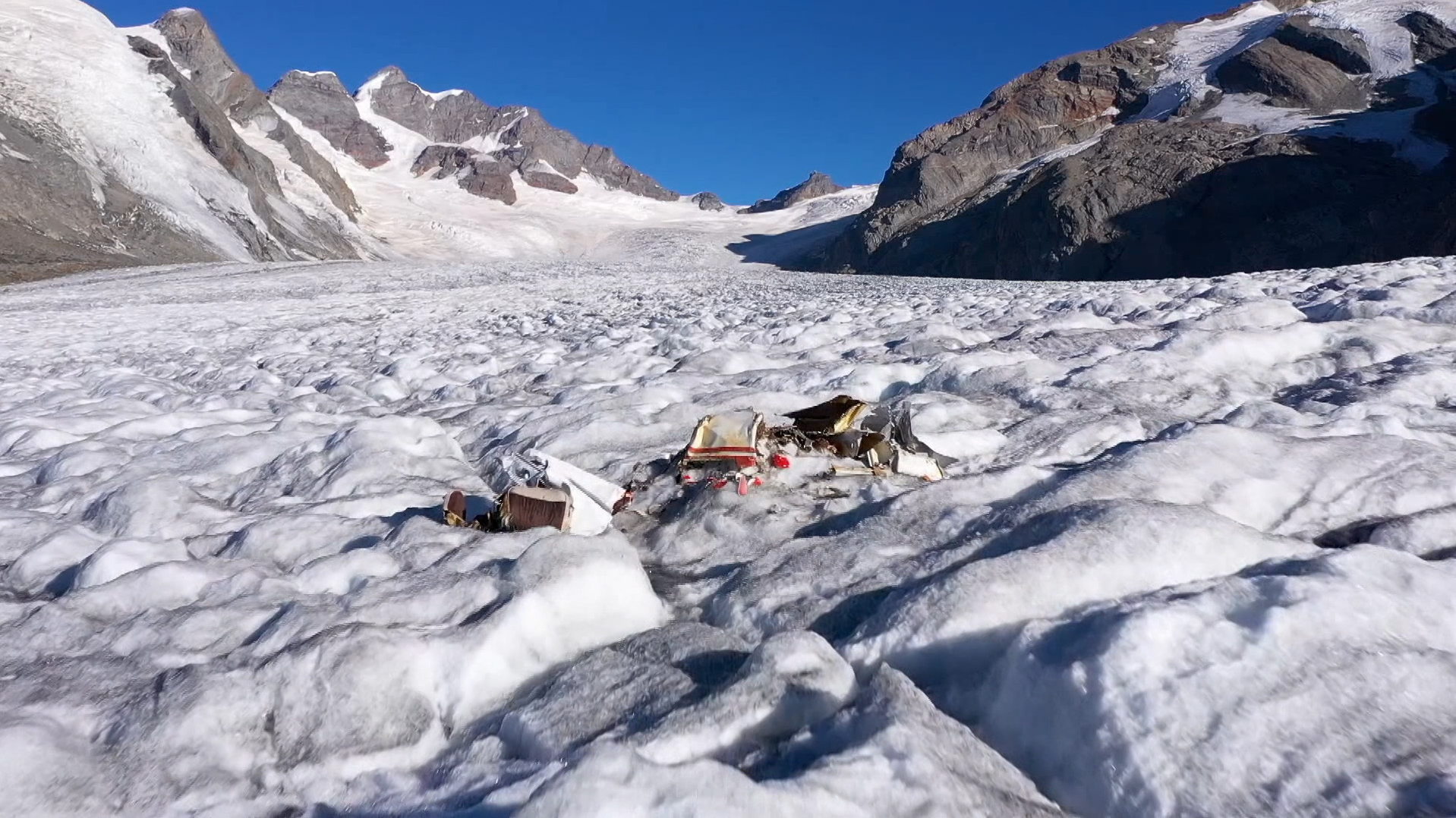
Alpine glaciers fall victim to Europe’s warming climate

Melting process affecting ice bodies from the Himalayas to the Andes has been most apparent in Europe.
It was the summer of 2022 that finally orphaned the Scex Rouge glacier, breaking the connection that linked it to its larger parent for millennia.

Only last year, three metres of ice covered a rocky saddle of land high up in the Swiss Alps, across which a monumental tongue of ice has crept down from the bigger Tsanfleuron glacier for as many as 5,000 years. But on a bright sunny day this week, a slushy isthmus the depth of an icy puddle was all that connected the two, as a long-hidden path opened up between them.
“We knew the pass would emerge one day,” said Bernhard Tschannen, chief executive of Glacier 3000, a ski resort that operates cable cars up to the glaciers on the Diablerets massif. “This year was dramatic,” he added. “We’ve lost about three times as much ice this year as we have on average in each of the last 10.”
Here in Europe’s highest mountain range, 3,000m above sea level, the impact of Europe’s extreme summer — the latest in a series of blisteringly hot summers and unusually mild winters — has become glaringly clear. Ancient glaciers are under threat across the globe, from the Himalayas to the Andes, but the melting process has been most apparent in Europe, and in particular the Alps.

More
Switzerland’s dangerous glaciers under close surveillance
Tschannen said he had seen radical changes in the 15 years he has worked on the high peaks. There used to be so much ice that the views were completely different, he noted, with whole mountains obscured by the mass of various glaciers.
“We know from what we’ve measured so far that this year will definitely be the worst on record for glacial retreat — and by quite some distance,” said Daniel Farinotti, a glaciologist at ETH, the research university of Zurich.
Heatwaves
Like the rest of western Europe, Switzerland baked in record temperatures this summer. Average temperatures were 0.4C higher this year than the previous record set in 2021, according to data released on Thursday by the EU’s Copernicus earth observation programme.
On a particularly hot day in July, the Swiss meteorological service said it had recorded a freezing altitude for water of 5,000m, which is higher than the summit of Mont Blanc.
Far from being unusual, climatologists and glaciologists say the events of this summer are an acceleration of an already ominous trend.
Switzerland’s glaciers have lost half their mass since the 1930s, according to a study published last month by ETH and the Swiss Federal Institute for Forest, Snow and Landscape Research.

More
More human remains and objects emerge as glaciers retreat
“In many glaciers we now see features of what we call collapse — crevasses opening up and ice falling apart — and this is certainly not going to regrow next year,” Farinotti said. “Irreversible damage is being done.”
This summer’s heatwave was particularly impactful because it followed an unusually dry winter. With less snow falling across the Alps in the colder months, glacial ice was exposed to the sun directly in the late spring.
For some sceptics, the Alps’ shrinking glaciers are an inevitable fact of geological change: the Earth is simply coming to the end of a long period of glaciation, they say.
Climate scientists, however, are clear that the current warming is so sudden and extreme that it cannot simply be explained as part of the Earth’s long-term natural climactic cycles.
Visual language of climate change
The loss of glaciers “is the visual language of climate change”, said James Dalton, head of water and land management at the International Union for the Conservation of Nature.
“If sceptics could go and see what has happened to these glaciers, compared with what they were like 50 or 60 years ago, I think there would be less doubt. Even with five or 10 cold years that ice is not coming back.”
For many communities in the Alps, the glaciers’ disappearance is a cause of grave concern.
The sense of crisis has been driven home by a spate of eerie news stories this summer, as receding ice has relinquished long-frozen, unknown tragedies. Bodies have emerged, clad in clothes from decades ago, along with the wreckage of a plane from 1968, the disappearance of which had until now been a mystery.
Then there are the myriad social and economic ways that the diminishing of the glaciers could alter life. Whole water systems may need rethinking, as this summer’s severe drought in Europe showed.
Alpine glaciers acted this year as an effective emergency reserve, feeding rivers such as the Rhine, Rhone and Po more than usual to make up for less rainfall in the lowlands. But once they are gone the effects of droughts downstream would be even more severe.
According to scientists, even if warming temperatures could suddenly be halted, it would already be too late for hundreds of Switzerland’s 1,400 glaciers, which make up around half of all the glacial ice in the Alps.
Just as a large drift of compacted snow in a city may last for days after a cold spell, even in the warm sun, so too are glaciers’ current sizes reflective of past temperatures. There is a lag. “We’ve calculated how much loss is already committed and that figure comes out at about 40 per cent more of current mass,” said Farinotti.
Tschannen was in no doubt that, cut off from the Tsanfleuron, Scex Rouge would not survive. “Glaciers are a living mass,” he explained. Severed from its parent, any efforts to save the ice mass would ultimately fail. “I think it will be gone within the decade.”
Copyright The Financial Times Limited 2022

In compliance with the JTI standards
More: SWI swissinfo.ch certified by the Journalism Trust Initiative





























You can find an overview of ongoing debates with our journalists here . Please join us!
If you want to start a conversation about a topic raised in this article or want to report factual errors, email us at english@swissinfo.ch.